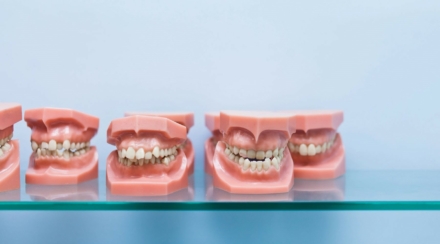Traveling with braces requires thoughtful planning and preparation to ensure dental hygiene and treatment continue seamlessly despite being away from home. Embarking on travel presents unique challenges such as dietary considerations and maintaining oral hygiene on the go.
Pre-Travel Preparations
Appointment Scheduling
Schedule an appointment with your orthodontist right before you head away to make sure everything is as it should be. Giving things a once over by your orthodontist will also ensure your braces are in optimal condition prior to traveling, and they will be able to make any necessary adjustments as needed before you head off.
If traveling for an extended period, inform your orthodontist and discuss the possibility of scheduling check-ins remotely or at your destination. Some orthodontists may provide you with a cheek retractor so you can take a series of quality photos of your teeth.
For example, this can be helpful when monitoring the midlines of the upper and lower teeth, changing the direction of the rubber bands/elastics, or stopping wearing rubber bands all together.
Emergency Preparedness
Keep your orthodontist’s contact information handy for any emergencies during your travels.
In addition to your usual dental hygiene travel equipment, pack some additional items in case of emergencies on the road. This can include orthodontic wax, extra rubber bands/elastics, pain relief such as paracetamol or ibuprofen, and a pair of nail clippers (clean or new!) to manage minor issues such as poking wires.
Diet
When traveling with braces, choosing the right foods is crucial to avoid discomfort and potential damage to your orthodontic appliances.
Plan your travel meals and snacks to include foods that are safe for braces. Soft and non-sticky options are ideal to prevent damage and reduce the need for cleaning.
Foods to avoid include hard and crunchy foods such as popcorn, nuts and hard candies as they can break brackets and wires. Avoid foods like caramel, gum, and chewy candy which can get stuck and pull on braces, increasing the risk of damage.
Oral Hygiene
Maintain your regular oral hygiene routine by packing travel-sized toothbrushes, toothpaste, and floss, and brushing after every meal.
If brushing isn’t possible immediately after eating, rinse vigorously with water to help dislodge food particles.
Drink plenty of water to stay hydrated, which helps maintain saliva flow and washes away food debris and bacteria.
Common Orthodontic Emergencies
When traveling with braces, being prepared for orthodontic emergencies is crucial. A useful tip is to take a photo with your smart phone and send it to your orthodontist’s reception. This will show the team what has gone awry and they can be prepared for your next appointment. Here’s how to handle common issues:
Broken or Loose Brackets
- Loose or Broken Bracket: If a bracket breaks or becomes loose, try to slide it back into position if possible, cover it with dental wax, and contact your orthodontist. If one of the broken brackets is being used for elastics, cease elastic use until advised by your orthodontist. If one of the broken brackets is right at the back of your mouth and is causing pain or ulceration, seek advice from your orthodontist.
- Emergency Assistance: If you cannot manage the issue, seek help from a local orthodontist.
Discomfort and Injuries
- Poking Wire: Use a pencil eraser or a cotton swab to gently push the wire away from irritating areas. If necessary, trim the wire with nail clippers and apply dental wax.
- Traumatic Injury: For injuries involving stitches or severe dental trauma, go directly to a hospital emergency department where you can be assessed by a dental team. For less severe issues such as a chipped tooth, contact a general dentist.
Lost or Damaged Appliances
- Lost Aligner: Contact your orthodontist promptly to determine if a replacement is necessary before your next appointment. If you are close to moving to the next aligner at the time of aligner loss, you might be able to skip the next aligner Staying Comfortable with Braces During Long Journeys
Conclusion
Traveling with braces, though challenging, can be made significantly easier with the right preparation and mindset. For additional peace of mind and to ensure your braces are in perfect condition for your next adventure, contact your specialist orthodontist for advice.
Embracing these practices not only promises a comfortable and worry-free travel experience but also moves you closer to achieving the beautiful, healthy smile you envision.




